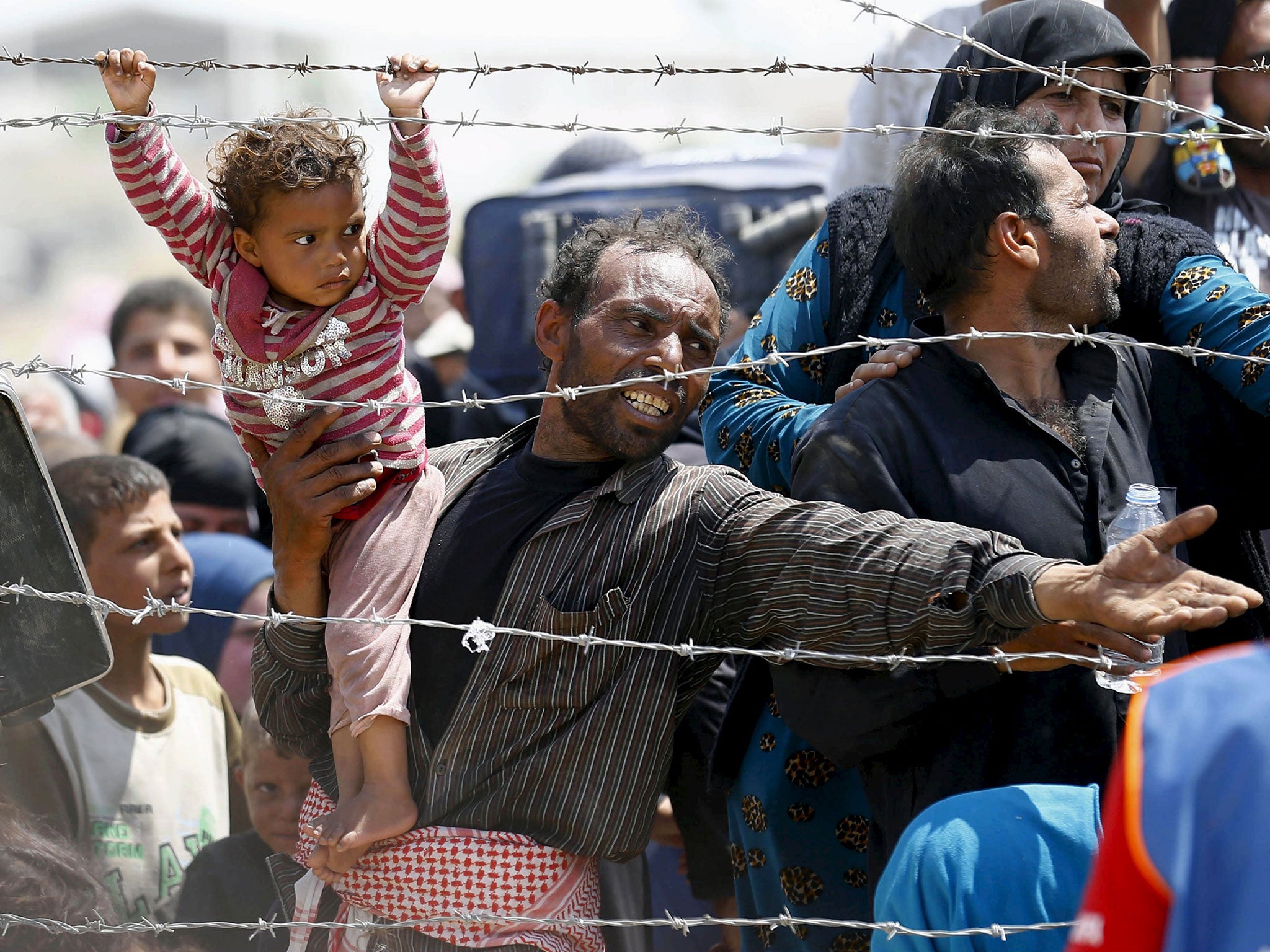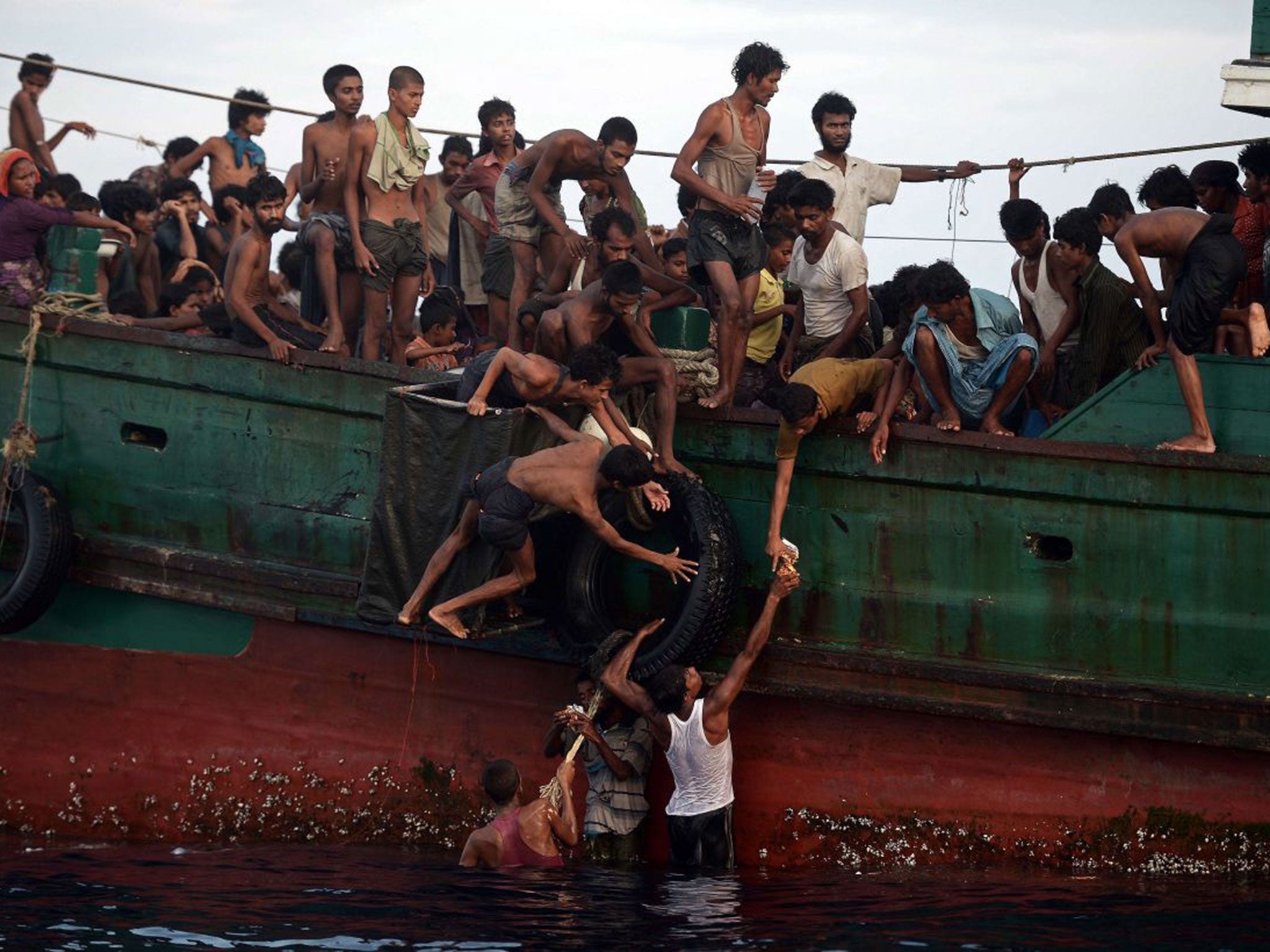More people are fleeing their homes than ever and migration is not going to stop any time soon, UN warns
The UN's refugee agency said global displacement is at the 'highest level ever recorded' and continuing conflicts will continue the flow of refugees

More people are being forced from their homes by war, persecution and poverty than ever before, driving an international migration crisis that is likely to get worse according to the United Nations.
One in every 122 people in the world is currently either a refugee, internally displaced or seeking asylum because the "world is a mess", according to the head of the UN’s refugee agency (UNHCR).
Its World at War report, released today, revealed the scale of the crisis driving the waves of desperate people dying in their attempts to cross the Mediterranean and seas across the world to reach a better life.

António Guterres, the UN High Commissioner for Refugees, told the BBC the "world is a mess".
He added: "The drama is that if people think that humanitarians can clean up the mess. It's no longer possible. We have no capacities to pick up the pieces.
"More and more people are suffering, and unfortunately for many of them there is no chance to support them."
The number of people classified as “forcibly displaced” at the end of last year had risen to 59.5 million, compared to 51.2 million in 2013 and 37.5 million a decade ago - the biggest annual leap ever recorded.
Mr Guterres said: “We are witnessing a paradigm change, an unchecked slide into an era in which the scale of global forced displacement as well as the response required is now clearly dwarfing anything seen before.
“It is terrifying that on the one hand there is more and more impunity for those starting conflicts, and on the other there is seeming utter inability of the international community to work together to stop wars and build and preserve peace.”

The Syrian war is now the largest single driver of migration, with the country overtaking Afghanistan as the world’s biggest source of refugees.
But it is far from the only conflict. At least 15 wars have erupted or re-started in the past five years alone, including the Islamist insurgencies in Iraq and Yemen, Ukrainian crisis and conflicts in eight African countries.
Because the violence is continuing or, in some places, worsening, families continue to flee and few are able to return to their homes.
“There is a multiplication of new crises,” Mr Guterres said. “The Iraq-Syria crisis gained the dimension of a mega one...and at the same time the old crises have no solutions.”
The UNHCR said in a statement that the deaths of hundreds of migrants at sea is one of the most visible consequences of the crisis, with people experiencing “terrible suffering” on the treacherous journey.
Half of all refugees are children, according to the report, which called for more funding and greater international co-ordination for the humanitarian response, as well as commitment to ensure tolerance for migrants as they assimilate into new countries.
Turkey, which borders Syria, is the world’s largest host of refugees and saw 1.6 million arrivals last year, followed by Pakistan.
Maher Al Khedrawi, a Syrian who fled to Turkey, said he was among a large proportion of people who did not want to settle abroad permanently but hope to return home as soon as possible.
“Hopefully, our home will be rebuilt and stabilised again,” he told the Associated Press.
“I'll be among the first people who go back. There is no place like home.”
.jpg)
Mr Guterres appealed for “all countries in the world to have their doors open”, especially richer nations in Europe and the Gulf.
He alluded to “new walls being built or announced” in the wake of Hungary’s announcement that it is planning to build a 110-mile long barrier along its border with Serbia to keep out a flow of migrants.
The British Refugee Council urged David Cameron to take immediate steps to ensure safe passage to Britain for people risking their lives to reach the UK.
Chief executive Maurice Wren said: “Britain and Europe can no longer watch on impassively, pretending this is someone else’s problem, especially when we see the shameful evidence on our own doorstep as refugees are forced to take deadly risks on the Mediterranean in their desperation to escape the killing zones. ”
Additional reporting by AP
Join our commenting forum
Join thought-provoking conversations, follow other Independent readers and see their replies
Comments
Bookmark popover
Removed from bookmarks